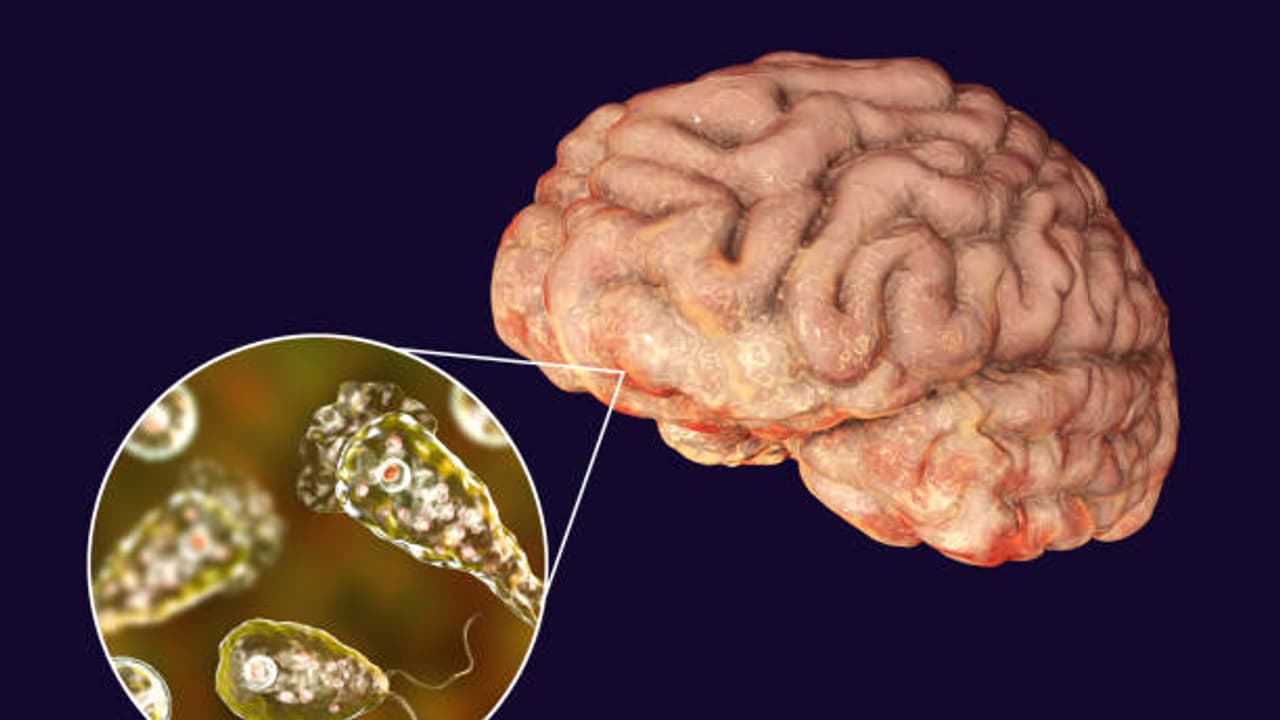In Kerala, the local health department has sounded an alert in the Kozhikode district after a nine-year-old girl died of a rare brain-eating amoeba infection.
A nine-year-old girl died of a rare brain-eating amoeba infection in Kerala after which the local health department has sounded an alert in the Kozhikode district. According to reports, the region, in recent days, has seen three back-to-back cases of primary amoebic meningoencephalitis (PAM) including three-month-old baby. What is primary amoebic meningoencephalitis? How can you protect your family and yourself from the rare brain-eating amoeba? Here’s all you need to know.
What happened to the nine-year-old Kerala girl?
The death of a nine-year-old girl at the medical college was due to amoebic encephalitis, a rare brain infection caused by free-living amoeba in contaminated waters, health officials confirmed. The girl was admitted to a hospital due to fever on August 13, but as her condition worsened, she was shifted to the Kozhikode medical college on August 14 where she died the same day.
A test carried out at the microbiology lab of the medical college revealed that the cause of the girl’s death was amoebic encephalitis. The search is on to identify the water body, such as a pond or lake, from where the child, a resident of Thamarassery, contracted the pathogen.
What is primary amoebic meningoencephalitis (PAM)?
Caused by free-living amoeba, amoebic encephalitis is a deadly infection that is typically contracted from freshwater sources such as lakes, rivers, and streams. It is caused by Naegleria fowleri, aka “the brain-eating amoeba”. The microscopic single-celled organism mainly thrives in warm water and heat and grows best in high temperatures up to 115°F (46°C) but can at times survive warmer temperatures.
Is it contagious?
No, it isn’t. An infected person cannot pass the disease on to another. The sure way of protecting yourself from the rare brain-eating amoeba is to avoid swimming in infected waters.
Symptoms of brain amoeba?
Common symptoms that typically start after about five days of infection include fever, nausea, and vomiting. Other symptoms that happen at a later stage of infection are a stiff neck, confusion, lack of attention to people and surroundings, seizures, hallucinations, and coma. Ultimately, it destroys brain tissue, causing swelling in the brain and finally death.
The disease progresses rapidly, and generally, death happens between one and five days after the infection. In almost 97 per cent of cases, the infection turns fatal.
